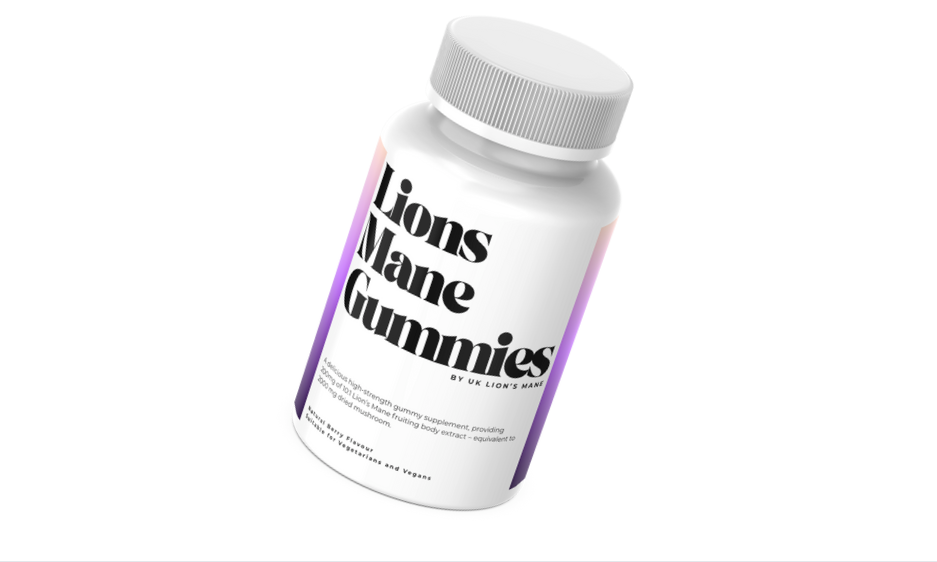
Lion's Mane Research & Studies: What Clinical Evidence Reveals
Share
Lion's mane mushroom research has progressed significantly from traditional use to rigorous clinical investigation. Current scientific evidence demonstrates measurable cognitive improvements, neuroprotective mechanisms, and promising therapeutic applications. Recent clinical trials show improvements in cognitive function scores and reduced stress levels in both healthy adults and those with mild cognitive impairment.
The research foundation spans over three decades, with both laboratory studies establishing mechanisms and human trials confirming real-world benefits. This evidence supports lion's mane as a scientifically-backed cognitive supplement with documented safety profiles and measurable outcomes.
Key Clinical Trials and Their Findings
Alzheimer's Disease Prevention Study
The most comprehensive long-term study followed 41 patients with mild Alzheimer's disease for 49 weeks, using erinacine A-enriched lion's mane mycelia (350mg capsules, three times daily). This groundbreaking research, published in Frontiers in Aging Neuroscience, demonstrated several significant improvements.
Participants receiving lion's mane showed significant improvements in MMSE scores and IADL (Instrumental Activities of Daily Living) scores compared to placebo. The study also revealed enhanced contrast sensitivity and improved blood biomarkers including calcium, albumin, and brain-derived neurotrophic factor levels.
Notably, brain imaging using diffusion tensor imaging showed that participants taking lion's mane experienced less neural structural deterioration in critical brain regions compared to the placebo group. This represents direct evidence of neuroprotective effects in humans.
Mild Cognitive Impairment Research
A Japanese study of 30 participants aged 50-80 with mild cognitive impairment found significant improvements in cognitive function after 16 weeks of supplementation with 250mg tablets taken three times daily. This double-blind, placebo-controlled trial used the Revised Hasegawa Dementia Scale and demonstrated consistent improvements at 8, 12, and 16 weeks.
Young Adult Cognitive Performance
Recent research on healthy young adults (18-45 years) showed that a single 1.8g dose of lion's mane improved performance speed on cognitive tasks within 60 minutes, whilst 28-day supplementation reduced subjective stress levels. This study, conducted at Northumbria University, represents important evidence for acute cognitive benefits in healthy populations.
Mechanisms of Action: How Lion's Mane Works
Nerve Growth Factor Stimulation
Hericenones (found in fruiting bodies) and erinacines (found in mycelia) stimulate nerve growth factor synthesis, with erinacines demonstrating superior ability to cross the blood-brain barrier. This mechanism directly supports neuronal survival, growth, and repair.
Erinacine compounds activate ERK and Akt signaling pathways, leading to neuronal differentiation and neurite growth. This cellular-level activity translates to improved cognitive function and neuroprotection.
Blood-Brain Barrier Penetration
Only erinacines, particularly erinacine A, have confirmed pharmacological actions in the central nervous system in animal studies. This bioavailability advantage explains why mycelium-based supplements often show stronger research outcomes than fruiting body extracts.
Biomarker Improvements
Clinical studies document improvements in multiple biomarkers associated with brain health. Research participants showed enhanced brain-derived neurotrophic factor levels, improved calcium and albumin status, and reduced markers of neuroinflammation.
Safety Profile and Clinical Evidence
Established Safety Record
Animal studies show no adverse effects at doses up to 3g/kg daily, with acute oral LD50 values exceeding 5g/kg in rats. Comprehensive toxicology testing, including genotoxicity and teratogenicity studies, confirms safety profiles.
Lion's mane is generally recognised as safe and has not been linked to liver enzyme elevations or clinically apparent liver injury. The National Institute of Health's LiverTox database confirms this excellent safety profile.
Reported Side Effects
Clinical studies report mild side effects in approximately 8% of participants, including abdominal discomfort, nausea, and skin rash. These effects are typically mild and resolve upon discontinuation.
Research Quality and Limitations
Study Design Standards
Recent lion's mane research employs rigorous methodologies including randomised, double-blind, placebo-controlled designs. A 2023 systematic review covering multiple dietary ingredients found significant improvements in cognitive function and reductions in anxiety and depression symptoms with lion's mane.
Sample Sizes and Duration
Clinical trials range from 4-week interventions to 49-week long-term studies. Sample sizes typically include 30-80 participants, representing appropriate pilot study parameters whilst highlighting the need for larger-scale research.
Current Research Gaps
Despite heterogeneous study design, current evidence suggests beneficial effects on cognitive impairment, though further clinical research is needed to demonstrate full therapeutic potential. Most human studies focus on older adults or those with existing cognitive concerns, with limited research on healthy younger populations.
Active Compounds and Standardisation
Bioactive Components
Over a thousand components have been identified in Hericium erinaceus extracts, with major bioactive compounds including β-glucan polysaccharides, hericenones, and erinacine terpenoids. Research increasingly focuses on standardised erinacine content for consistent therapeutic outcomes.
Quality Control Markers
Quality assessment of lion's mane supplements requires verification of erinacine content, with therapeutic research typically using products containing ≥3mg/g erinacines. This standardisation ensures consistent bioactive delivery.
Research Applications and Future Directions
Neurological Conditions
Preclinical studies demonstrate potential benefits for ischemic stroke, Parkinson's disease, Alzheimer's disease, and depression. Animal models show neuroprotective effects across multiple neurodegenerative conditions.
Emerging Research Areas
Current research investigates applications beyond cognitive health, including immune system modulation, digestive health benefits, and anti-inflammatory properties. A 2024 review highlighted the anti-inflammatory and antioxidant properties of lion's mane, contributing to overall health benefits.
Clinical Translation
The scientific community recognises the urgent need to translate basic and preclinical research findings to clinical practices. Ongoing studies aim to establish standardised protocols for therapeutic applications.
Frequently Asked Questions
How many clinical trials have been conducted on lion's mane? Multiple clinical trials have been completed, including long-term studies on Alzheimer's disease, mild cognitive impairment research, and acute cognitive performance trials in healthy adults.
What makes lion's mane research scientifically credible? Studies employ randomised, double-blind, placebo-controlled methodologies—the gold standard for clinical research. Multiple independent research teams have replicated core findings.
Are the cognitive benefits proven in humans? Yes, human clinical trials demonstrate measurable improvements in cognitive function scores, memory tests, and daily living activities across different age groups and cognitive states.
What's the difference between fruiting body and mycelium research? Mycelium research shows stronger clinical outcomes, likely due to higher erinacine content and superior blood-brain barrier penetration compared to fruiting body extracts.
How long do clinical trials typically last? Lion's mane studies range from acute (single-dose) effects measured within hours to long-term interventions lasting up to 49 weeks, providing both immediate and sustained benefit evidence.
We provide high-quality lion's mane supplements based on the research outlined above. Our products are formulated to deliver the standardised active compounds demonstrated in clinical studies. For questions about our research-backed formulations, please contact us.
Medical Disclaimer: This information is for educational purposes only and is not intended to diagnose, treat, cure, or prevent any disease. Always consult with a qualified healthcare professional before starting any supplement regimen, particularly if you have existing medical conditions or are taking medications.
